Fun, food, and finance

e’s fluent in Hebrew and fond of gangster movies and books that make him emotional.
He’s a finance professor by trade and recently started his new post at Arizona State University as dean of the W. P. Carey School of Business.
Meet Ohad Kadan.
After an intense national search, Kadan left his position as the vice dean for Education and Globalization and the H. Frederick Hagemann Jr. Professor of Finance at the Olin Business School at Washington University in St. Louis to report for work at the Tempe campus in Arizona on July 1.
Since then, he’s hit the ground running. Kadan has been holding planning sessions with faculty and key personnel, finding new ways for innovation, setting long and short-term goals, and adjusting from a private school setting to a public university.
We spoke to Kadan a few weeks into his new tenure. Here’s what he had to say about his new and unfolding adventure.
What resonated about W. P. Carey and Arizona State University while pursuing this position?
Several aspects of the school attracted me. First, I found the ASU Charter very appealing. I believe ASU is charting new territory in higher education. Second, the Phoenix metro area is a thriving region. It’s the fifth-largest city in the United States and it’s growing fast, with both migration of individuals and corporations moving in. I think that’s important for a business school or university. So, I see a lot of opportunities just being in the metro Phoenix area. The third issue that attracted me was the school itself, particularly the faculty and staff. We know the faculty at W. P. Carey has a strong reputation in teaching and research. That’s an attractive point in joining this phenomenal group and its already great undergraduate and graduate programs. ASU is also well known for innovation, and W. P. Carey has been offering innovative programs and leading online education. I view myself as an academic entrepreneur and felt that this would be a suitable ecosystem for me in terms of adding or contributing to that innovative approach here at ASU and W. P. Carey.
Q: After a yearlong national search process, ASU nominated you as the dean in fall 2021. You officially took the position on July 1, 2022. What did it feel like when you took the helm?
A: I had quite a bit of time between when I was named dean back in November and the beginning of July when I started the job. During that time, I thought carefully to prepare for my job. I come from a very different school, a private school, and now I work for a big public school. I used that time to learn, prepare, and plan. When I took over as dean in July, I felt ready, prepared, and motivated to start executing everything we had planned.
Reference list
—Tom Choi, AT&T Professor and professor of supply chain management
“As chair of the W. P. Carey dean’s search committee, I am thrilled to welcome Dean Kadan to ASU. He has hit the ground running, connecting with other colleges, creating a fantastic leadership team for W. P. Carey, and developing a strategy for the years to come. I have already come to appreciate his collaborative spirit, global understanding, and principled approach to Innovation.”
—Carole Basile, dean, Mary Lou Fulton Teachers College
“Within the search process, the selection committee was impressed with Dean Kadan’s thoughtfulness, candor, and focus on strategy and listening to stakeholders. We were also very interested in how he translated his concern for DEI issues into his research on the intersection of racial diversity and asset management. I also enjoyed learning about this project when he presented it at the W. P. Carey DEI event. He made his research accessible and engaging to faculty and staff across the business school. During the initial Zoom interview with the committee, a technical issue arose in which Dean Kadan’s computer began to shut down halfway through our discussion. He pivoted to interviewing on his phone seamlessly, continuing a complex answer midquestion, with 14 people on the call, without skipping a beat. Dean Kadan struck me as someone able to act thoughtfully and nimbly, crucial qualities of a leader.”
—Adriana Samper, associate professor of marketing
“Two factors most impressed me about Ohad. The first was that he is humble. Even though he is both brilliant and an accomplished scholar, during interviews, he was comfortable simply responding to a question by saying, ‘I don’t know the answer to that.’ The second — and one that I admire — is that he’s willing to take bold steps consistent with his ideals to make positive change. For instance, in his previous position, he translated his commitment to the ideals of diversity, equity, and inclusion into the development of a new, required DEI course for first-year MBA students.”
—Jose Mendez, professor and assistant department chair of economics
“Dean Kadan has impressed me as a leader who is energized by the challenge of taking one of the nation’s largest and most impactful business schools to even greater scale and global prominence. In our first few months of working together, I have seen him approach challenges as opportunities, tackling them with thoughtful discipline, collaboration, creativity, pragmatism, and action. I also appreciate his emphasis on designing a business school experience that creates more experiential learning opportunities for students, focusing on developing an entrepreneurial and innovation-focused mindset in our learners. These skills and experiences are needed to prepare these future W. P. Carey alumni to positively impact their lives and careers.”
—Kent Hopkins, vice president, Academic Enterprise Enrollment, Office of the Provost
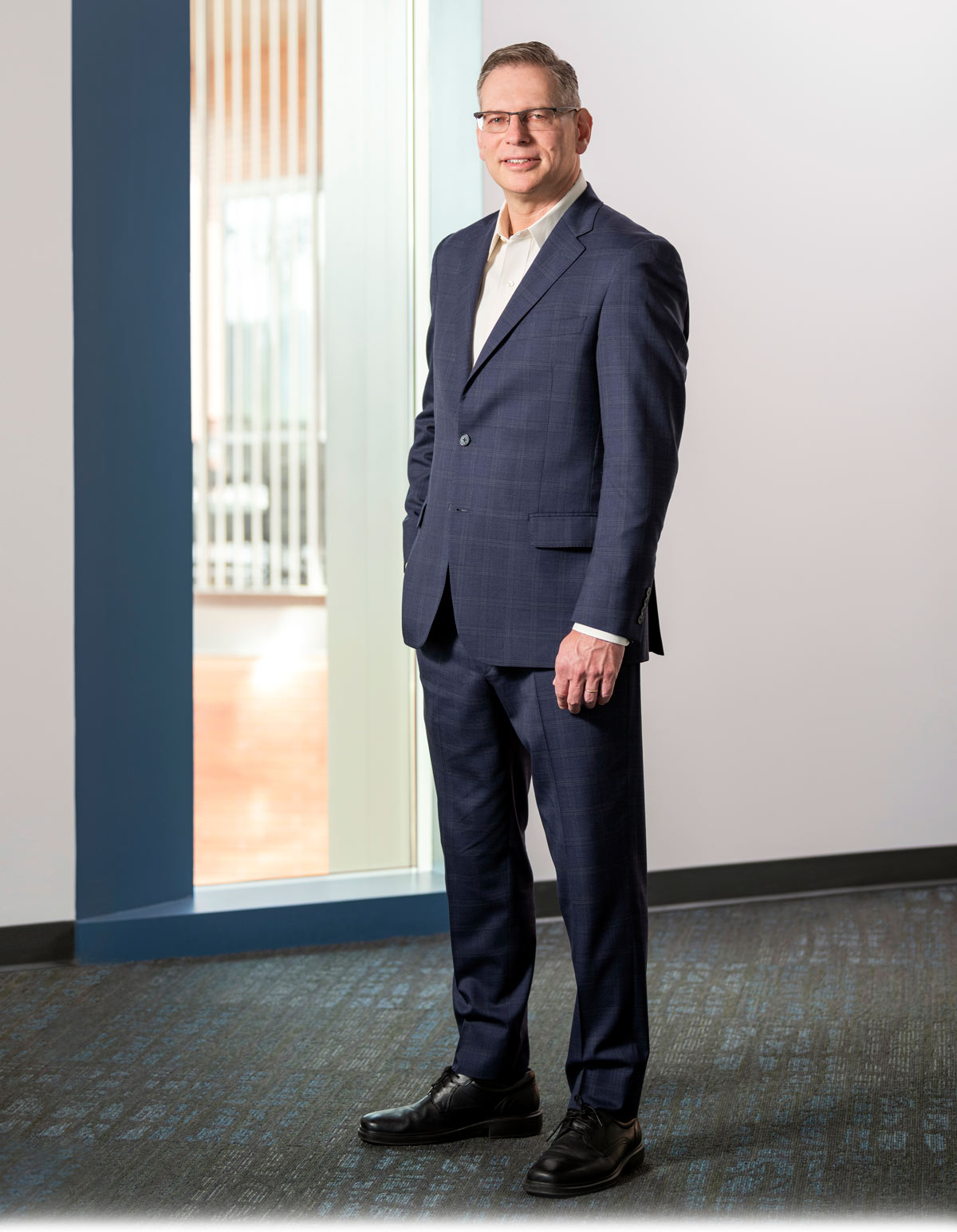
—Tom Choi, AT&T Professor and professor of supply chain management
“As chair of the W. P. Carey dean’s search committee, I am thrilled to welcome Dean Kadan to ASU. He has hit the ground running, connecting with other colleges, creating a fantastic leadership team for W. P. Carey, and developing a strategy for the years to come. I have already come to appreciate his collaborative spirit, global understanding, and principled approach to Innovation.”
—Carole Basile, dean, Mary Lou Fulton Teachers College
“Within the search process, the selection committee was impressed with Dean Kadan’s thoughtfulness, candor, and focus on strategy and listening to stakeholders. We were also very interested in how he translated his concern for DEI issues into his research on the intersection of racial diversity and asset management. I also enjoyed learning about this project when he presented it at the W. P. Carey DEI event. He made his research accessible and engaging to faculty and staff across the business school. During the initial Zoom interview with the committee, a technical issue arose in which Dean Kadan’s computer began to shut down halfway through our discussion. He pivoted to interviewing on his phone seamlessly, continuing a complex answer midquestion, with 14 people on the call, without skipping a beat. Dean Kadan struck me as someone able to act thoughtfully and nimbly, crucial qualities of a leader.”
—Adriana Samper, associate professor of marketing
“Two factors most impressed me about Ohad. The first was that he is humble. Even though he is both brilliant and an accomplished scholar, during interviews, he was comfortable simply responding to a question by saying, ‘I don’t know the answer to that.’ The second — and one that I admire — is that he’s willing to take bold steps consistent with his ideals to make positive change. For instance, in his previous position, he translated his commitment to the ideals of diversity, equity, and inclusion into the development of a new, required DEI course for first-year MBA students.”
—Jose Mendez, professor and assistant department chair of economics
“Dean Kadan has impressed me as a leader who is energized by the challenge of taking one of the nation’s largest and most impactful business schools to even greater scale and global prominence. In our first few months of working together, I have seen him approach challenges as opportunities, tackling them with thoughtful discipline, collaboration, creativity, pragmatism, and action. I also appreciate his emphasis on designing a business school experience that creates more experiential learning opportunities for students, focusing on developing an entrepreneurial and innovation-focused mindset in our learners. These skills and experiences are needed to prepare these future W. P. Carey alumni to positively impact their lives and careers.”
—Kent Hopkins, vice president, Academic Enterprise Enrollment, Office of the Provost
A: First is the importance of collaboration and working with the faculty and staff. That has been a staple of my work as a leader and administrator. You can’t do it all alone; it must be teamwork. And that’s something I’ve learned along the way. The second thing I learned was the importance of strategic planning. I couldn’t take my position and say, “Let’s do that or do something else.” I had to plan. Planning is not something I could do on my own. It had to be assured by faculty, students, staff members, alumni, the business community, and the university leadership, all contributing to this plan of what is and who is W. P. Carey? What are we about at the business school? Who do we want to become? Where are we heading? We were doing this well at the Olin Business School. I’m carrying it with me to W. P. Carey — the idea that you need to plan strategically, think long-term about where you want to be five and 10 years from now, and work together to develop and execute the plan. And it can’t be an amorphous plan. It must have measurable goals. It must have a timeline. It must have champions who are responsible for execution. It must be a tangible plan. That’s what we are doing here right now.
A: I’m a finance professor. I’ve been a finance professor my entire career, starting as an assistant professor at Washington University and advancing through the ranks. Over the 20 years I spent at Washington University, I researched different areas of finance. First, I started studying the structure of financial markets, then focused more on financial decisions at the corporate level. More recently, I’ve focused on pricing and asset management questions. I’ve also focused on the information you can elicit from the prices of options and derivatives and on the implications of diversity, equity, and inclusion on investment decisions.
A: I think a few areas we could develop are executive education, continuing education, lifelong learning, and engagement with businesses and the community. They just haven’t been as developed as they should. So, those are areas I’m particularly interested in and will work to develop further.
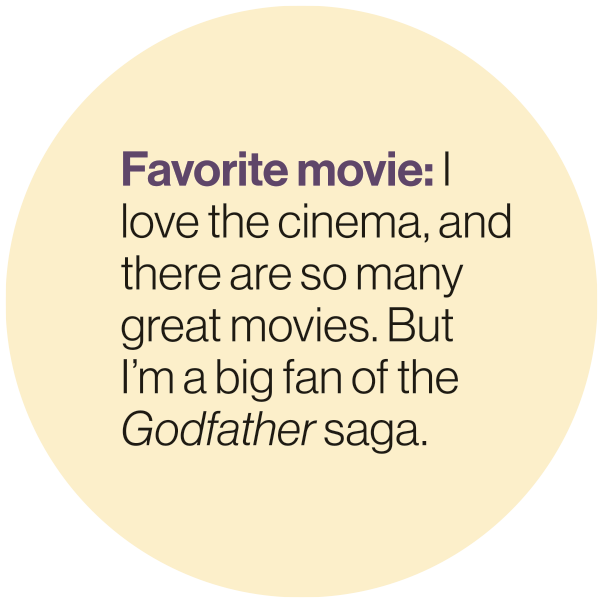
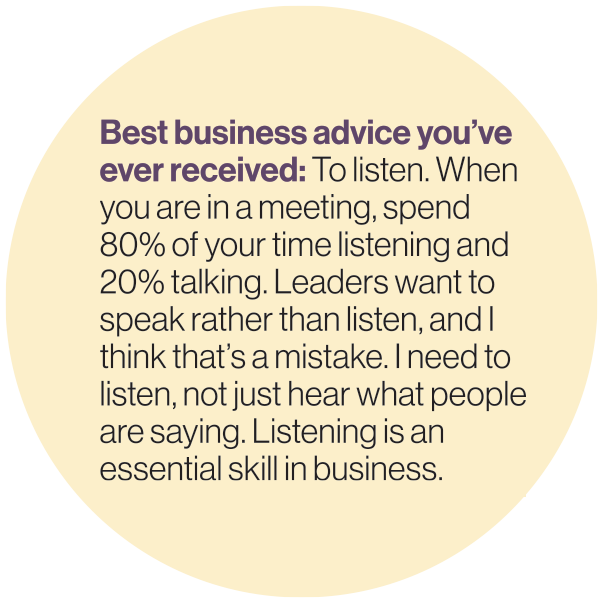
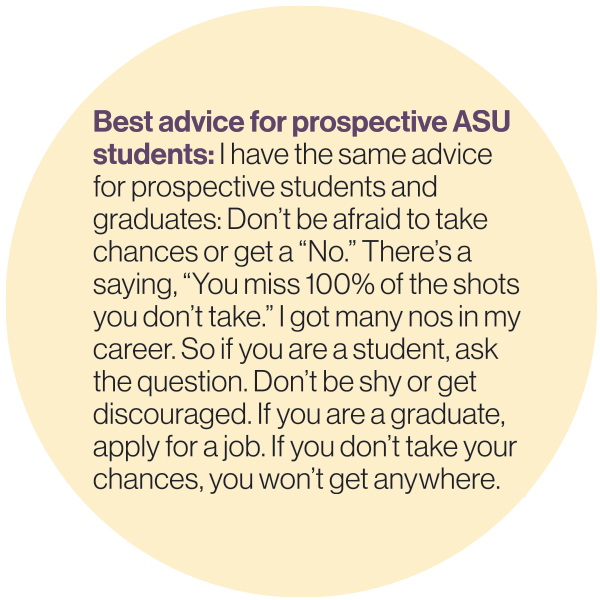
A: The first was to launch a strategic planning process that looks five to 10 years ahead and asks, “Where are we going to be?” Creating a strategic plan sounds obvious, but it’s not apparent to everybody. We are now pausing, thinking long term, and working together to plan and reach out to all our stakeholders and ask, “What do you think? What is your feedback? What are your ideas?” Collecting all this information into a strategic plan was my first major decision. I made this decision early after being named dean because I couldn’t do it any other way. The second important decision that became clear as part of the strategic planning process was the need to emphasize executive education, continuing education, and lifelong learning here at W. P. Carey. I created a new unit around those areas in collaboration with then-interim dean Amy Ostrom and appointed Raghu Santanam, senior associate dean for Executive Education, Corporate Partnerships, and Lifelong Learning, to jump-start the process. I wanted this to begin even before I came to Tempe.
A: Our vision focuses on access, excellence, and innovation in business knowledge. It’s who we already are, but we will emphasize it more. Access to education is critical. We are here to provide education to those who need it. Education is not a luxury. It opens doors and creates opportunities, and we are here to provide that. That’s essential. And it’s not any education, it’s excellent education. It must be top-notch education: We need to attract top-notch faculty and amazing students so we will deliver not only on access but also on excellence. Finally, how do we offer all of that? Through innovation. We innovate, and we teach innovation, but we also practice innovation in everything we do. That’s part of the ASU identity. I should say we will also engage with everybody around us. We will engage with businesses, the community, and all of ASU. We are going to be team players here on campus. We take the ASU Charter very seriously, which says we need to contribute and be committed and inclusive.
Dafna’s take:
What are the restaurants on your list to try and why? Lon’s at the Hermosa Inn in Paradise Valley because it’s a historic place with Camelback Mountain views and great reviews. Ohad has been there already and recommended the place. Thai Coconut in Scottsdale because I love authentic international food, particularly Thai food. Cafe Lalibela Ethiopian Cuisine in Tempe because we used to eat at an Ethiopian restaurant in St. Louis frequently, and I’d like to try this one, too.
What part about Ohad’s new role at ASU are you most excited about? I am most excited to see his impact on such an innovative business school like W. P. Carey. Furthermore, I am eager to learn about the wide variety of people he will collaborate with in providing access to excellent higher education.
What are you looking forward to once you’ve settled into the area? I look forward to meeting the people Ohad is working with at W. P. Carey and participating in social events associated with his role. I also can’t wait to explore the beautiful nature
of Arizona.
Anything I didn’t ask that you want to share? We have three sons: Yoav (24), Yair (21), and Amit (17). Yoav and Yair have not yet visited us in Arizona. I am looking forward to uniting our family when they come later this year to ASU. They look forward to visiting W. P. Carey!
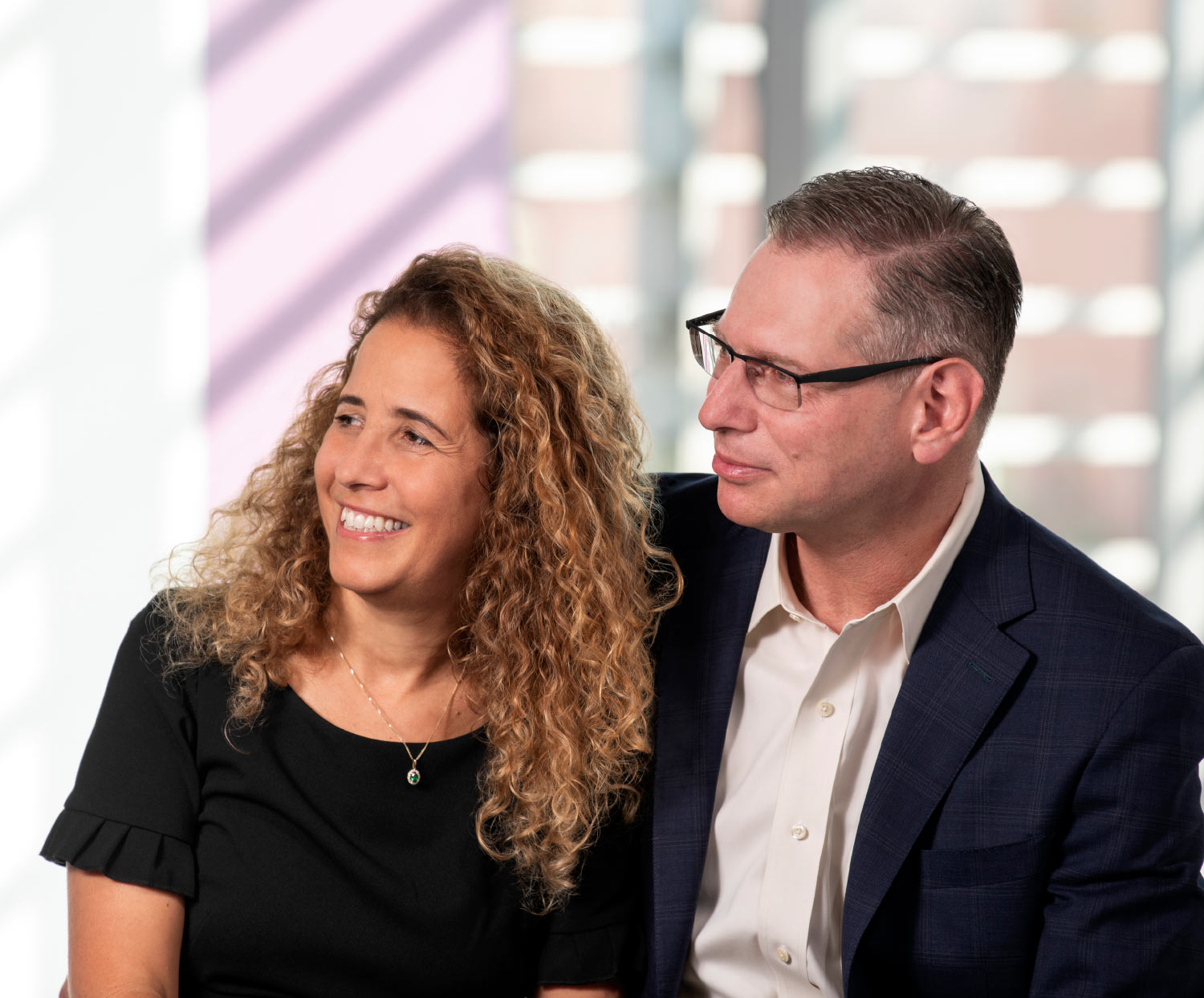
A: Dafna’s a very social person, so I expect her to participate in many W. P. Carey events, including fundraising and other activities. She’s looking forward to participating and interacting with the entire community, whether within W. P. Carey at the university or in the community at large. She’s also looking forward to moving to Phoenix and sharing this experience with me.
Q: You’ve had a whirlwind year after the selection process and moving to Arizona from Missouri. How do you spend your time when life isn’t so busy?
A: I like to spend time with family to the extent I can. They’re my priority in life. I have three children: My oldest is 24, my middle child is 21, and my youngest, who is still living with us, is 17. I dedicate as much time to my family as possible, given my many obligations and commitments. In terms of leisure time, we like hiking.